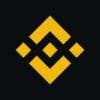⚡ TL;DR – NFTs Explained in Simple Terms
A Non-Fungible Token (NFT) is a unique digital asset stored on a blockchain that represents ownership of specific items like art, collectibles, or in-game assets. Unlike cryptocurrencies, NFTs are one-of-a-kind or part of limited collections, making them valuable for digital ownership. While Solana is known for its low fees and high-speed transactions, NFTs are also popular on other blockchains like Ethereum and Binance Smart Chain.
❓ What is a Non-Fungible Token (NFT)?
A Non-Fungible Token (NFT) is a digital asset that represents ownership of a specific item or piece of content, such as artwork, music, collectibles, or in-game items, on a blockchain. Unlike cryptocurrencies like SOL or ETH, which are fungible (each unit is identical), NFTs are unique or part of a limited series, making them non-interchangeable and valuable for representing ownership in the digital world.
NFTs are stored on blockchain networks, providing verification of authenticity and provenance. While Solana has gained significant popularity for NFTs due to its low fees and high transaction speeds, other blockchains like Ethereum, Binance Smart Chain, and Tezos are also home to thriving NFT ecosystems, each offering distinct benefits.
How Do NFTs Work?
NFTs are created (or “minted”) through smart contracts, which define the rules governing the digital asset (e.g., uniqueness, ownership). These NFTs are then stored on the blockchain, ensuring their authenticity and providing a transparent history of ownership. Here’s how NFTs work on various blockchains:
- Solana: NFTs on Solana are minted with low transaction fees and processed quickly due to its Proof of History (PoH) consensus mechanism. This makes it a favorite for creators and traders seeking cost-effective solutions.
- Ethereum: Ethereum remains the most established blockchain for NFTs, though gas fees can be high. Its ERC-721 standard allows for secure and standardized NFT creation and trading.
- Binance Smart Chain: Offering low fees and fast speeds, BSC is an alternative for minting NFTs, with compatibility with Ethereum’s tools and platforms.
- Tezos: Known for its environmentally friendly consensus mechanism, Tezos provides a lower carbon footprint for NFT creation, appealing to eco-conscious creators.
Popular Use Cases for NFTs
NFTs serve more than just as digital collectibles. Their versatility extends to various industries:
- Digital Art & Collectibles: Artists use NFTs to tokenize their artwork, providing a verified and immutable digital signature for their work.
- Gaming: NFTs are used in play-to-earn games, allowing users to own in-game assets, like weapons or skins, that can be bought or sold.
- Tokenized Memberships: Some NFTs act as exclusive access passes to communities, events, or private services.
- DeFi & Staking: NFTs can also be used for staking and yield generation in decentralized finance (DeFi) platforms.
- Domain Names: Platforms like Solana Name Service (SNS) offer human-readable domain names as NFTs, which can be bought, sold, or transferred.
Why Are NFTs Popular?
NFTs have become increasingly popular for several key reasons:
- Ownership and Provenance: NFTs provide verifiable proof of ownership, which is especially valuable in art and collectibles.
- Transparency: The public nature of blockchain ensures that each NFT’s ownership history is transparent and accessible.
- Incentives: Creators and developers benefit from royalties on secondary sales of their NFTs, making them a source of ongoing income.
- Low Fees and High Speed: Blockchains like Solana and Binance Smart Chain offer low transaction fees and fast processing times, making NFTs more accessible to creators and buyers.
🔑 Key Takeaways
- NFTs are unique digital assets that cannot be exchanged on a one-to-one basis like cryptocurrencies.
- Solana, Ethereum, Binance Smart Chain, and Tezos are popular blockchains for NFT creation, each offering unique benefits such as low fees, speed, and environmental sustainability.
- NFTs have diverse use cases beyond digital art, including gaming, DeFi, membership passes, and domain names.
- Low transaction fees and fast transactions on networks like Solana make NFT trading more efficient and cost-effective.
❓ Frequently Asked Questions About NFTs
An NFT is a unique digital asset stored on a blockchain. Unlike cryptocurrencies like Bitcoin or Ethereum, NFTs are non-fungible, meaning each one is one-of-a-kind and not interchangeable with others.
NFTs can represent digital art, music, game items, domain names, membership passes, real-world assets, and more. They act as verifiable proof of ownership on-chain.
NFTs exist on many blockchains, including Ethereum, Solana, Polygon, Tezos, and BNB Chain. Ethereum is the most widely used, but Solana and others offer lower minting costs.
You can buy NFTs on marketplaces like OpenSea, Magic Eden, Blur, Tensor, or Foundation. You’ll need a compatible crypto wallet and enough funds to cover the price and transaction fees.
No. NFTs are unique and indivisible, while crypto coins like ETH or SOL are fungible and interchangeable. You can trade 1 ETH for 1 ETH, but every NFT is different in value and metadata.
Minting an NFT means creating it on the blockchain. It involves uploading the file (art, music, etc.), defining its metadata, and paying a small fee to write it to the blockchain.
The content can be copied, but the ownership and authenticity of the original NFT are verifiable on-chain. That’s the value — blockchain-backed provenance.
It depends. Some NFTs have appreciated greatly, but many have also lost value. Treat them as high-risk assets — or digital collectibles with utility, art, or community value.












